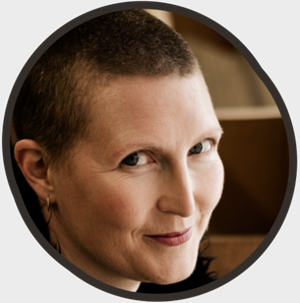Pasture and Flock by Anna Jackson
(Auckland: Auckland University Press, 2018). ISBN 9781869408794. RRP $35. 148pp.
On Saturday, I sat at Cook Street Takeaways waiting for my order (one crumbed fish, one scoop of chips), reading
I am quite unhinged
and will probably spend the rest of the day
staring out this window.
(“Thank for you having me, briefly, in your chamber”)
and I stared out the window for a while, at the cars going around the roundabout, contemplating how I’m quite unhinged.
Yesterday, I sat waiting for my osteopath and read
We spent our childhoods upright. We rose asleep.
We rose silent, when our breaths were taken.
We sat on the mat, and were told to sit up.
(“Afraid of falls?”)
and I tried to sit up properly. I thought about rising asleep.
I’ve been carrying Anna Jackson’s Pasture and Flock around for months now. My excuse, mainly to myself, is that I need to write this review. I need to keep trying to finish or re-read the book, so that I can start writing the review. Lately though, I’ve realised that Pasture and Flock has become a bit of a safety blanket for me.
This book is comforting.
Which isn’t to say boring, since people can confuse comforting with bland. But it feels like it wraps itself around you and holds you. I mean, isn’t that one helluva good thing for a book to do?
My first big encounter with Anna’s poetry was when I was meant to write a review of I, Clodia, and Other Portraits (sorry, I never wrote it because the book swamped me; here’s my review: the first part is confusing as hell, but part two is a special kind of magic). It was only when I met Anna — she was the lecturer for a 100 level paper on reading and writing poetry that I did at Victoria University of Wellington, and her support for my writing was the final turning point in re-finding my voice — that I, Clodia made sense. Well, no, the poems still didn’t. I don’t know the intricacies of ancient Roman society and I’d never heard of Catullus, so the Clodia poems are definitely way over my head. But Anna’s deep, thoughtful intellect for poems and people across time made me go, ohhhhh, yeah, I don’t get the poems but I get why Anna wrote them.
The Clodia poems in Pasture and Flock continue to not be my thing. But that’s okay, I turned the page and moved past them. Instead, I let myself get caught up in the thing that Anna does so brilliantly — writing about people, about life, about a son recording his own cooking show in the kitchen. She’s superb at creating characters and making them the truth within the world of that poem. The images she creates are delicious.
I remember my surprise eight years ago
when I looked under the downy fluff of a boy’s sweet talk
and saw the scale of fraud beneath.
(“I am reacquainted with the furry fish of fraud”)
How is Anna Jackson not a national treasure?
I’ll admit, the book is a slow entry for me, and the series “My friendship with Mayakovsky” didn’t grab my attention. But the affection for the people she writes into her poems is a thing to hold in gentle wonder, such as this entire poem about her children:
Johnny says,
Elvira’s hair
is clear
as God
and glass.
(“After the nit shampoo”)
The photographer poems from I, Clodia are here and are still brilliant. And I’m sorry Clodia, maybe if you were a pretty photographer who washes her pink knit top in vervain soap, maybe then I’d understand you, Clodia.
And this is from my favourite poem in Pasture and Flock, which includes the fabulous line ‘You index achievements, I index my dreams’:
But perhaps it is our appearances
in others’ indexes that count.
Well, I am in your index,
and you are in mine.
(“Indexing”)
Three days ago, I was in a waiting room (so much waiting in this life!) and read:
I think if you asked God if he would rather have
twenty-twenty vision of fireworks or be blind
with five children clambering over him, five children
clamouring for him to light the fireworks
he wouldn’t be able to see, the answer would be
time works different up here
(“God and us”)
and I sighed at the idea of time working differently for God, even though I’m pantheist and don’t believe in God. Then I got out my notebook and quickly wrote a poem in which I go out on a date with God after meeting them on Tinder. And my poem is hugely different to Anna’s, but mine wouldn’t have existed if I hadn’t sat there contemplating God and vision and fireworks, in a tiny waiting room, sitting on white French country furniture, and reading Anna’s poems.
First published in a fine line (New Zealand Poetry Society magazine) (2020)




